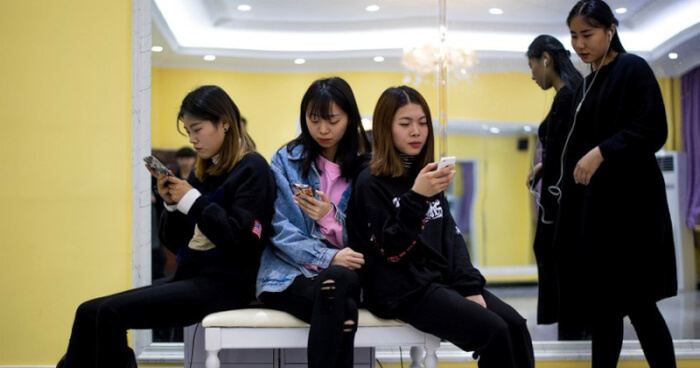Younger Chinese generation say no to overtime unless being paid extra, ready to "fire their boss"
Young workers in China today have more choices in work, so if their values and voices are not respected, they are ready to switch jobs.
 Source: Pinterest
Source: Pinterest
According to preliminary results of a survey by recruitment website Zhaopin, the traditional relationships between employers and employees in the billion-dollar market are being turned upside down. Gen Z has become the dominant force in the labor market, and the COVID-19 pandemic has contributed to accelerating the digitalization of the workplace.
In China, respecting workers, keeping promises, paying wages in accordance with contributions and equality are the qualities most appreciated in an employer, according to the survey results.
The findings emphasized the structural change taking place in China's workforce, which was the subject of a conference organized by Zhaopin at Peking University in early November.
Gen Z values happiness, doesn't want to work overtime if not paid extra
As China's economy develops rapidly, the number of occupations also increases. Since 2019, the Ministry of Labor has announced more than 50 new occupations in China's industries.Meanwhile, a 2020 report from Zhaopin says more than 70 new types of jobs have been created on Meituan - a super app that provides a wide range of services from food delivery to ride hailing - in new industries.
Chen Long, a PhD student at Peking University, said: "If Gen Z is not respected in a company, or their values cannot be properly implemented, they can easily switch jobs because there are many different options in the labor market. Compared to the older generation, Gen Z also lives and works more rationally. They don't want to work overtime without getting paid more, and they don't accept empty promises from their boss."
"They value happiness and think that life is more interesting than just work. Therefore, they no longer accept unfairness in companies and easily switch jobs if they feel like their job doesn't suit them anymore".
Besides, Mr. Chen emphasized: "In the past, traditional employers would fire workers when they felt they were not qualified. Now, things are different, Gen Z employees are doing the job of their own boss."
 Source: SCMP
Source: SCMP
Gen Z workers value happiness and think that life is more interesting than just work.
Old generation leaders need to change to match modern trends
Yao Yang, head of the National School at Peking University, said business leaders of older generations need to adapt to trends rather than stick to old principles."The development of a society has always been driven by newer generations, and the older generations will eventually bow their heads. As the great man once said, "The world belongs to young people", so they have to decide where our society is going," Yao Yang quoted the late Chairman Mao Zedong as saying.
For Chinese companies, it is becoming more difficult to attract new talent, said Wang Shengtong, head of recruitment at JD.com. He asserts that students are no longer interested in recruiting events on campus, and companies need to stand out by offering more benefits, a better working environment and more importantly, sincerity.
Meanwhile, Sun Xianhong, head of recruitment at Oriental Yuhong, a materials company in Shenzhen, said that compared to older generations, making money is no longer the sole goal of Gen Z employees.
 Source: Pexels
Source: Pexels
"However, for Gen Z, or people born after 95, their financial situation is better and they never have to starve. So they are looking for higher goals, such as: being more vocal at work, more freedom, and shared values with the company."
Workshop attendees said the younger generation is also abandoning the famous "996" work culture, a grueling work schedule adopted by many Chinese tech companies that lasts from 9am to 9pm , 6 days per week.
Li Qiang, Executive Vice President of Zhaopin shared that young employees no longer accept overtime for the benefit of the company, and employers need to commit to developing with each employee, and find balance between increasing profits and helping employees find their passion.
Share this article
Advertisement